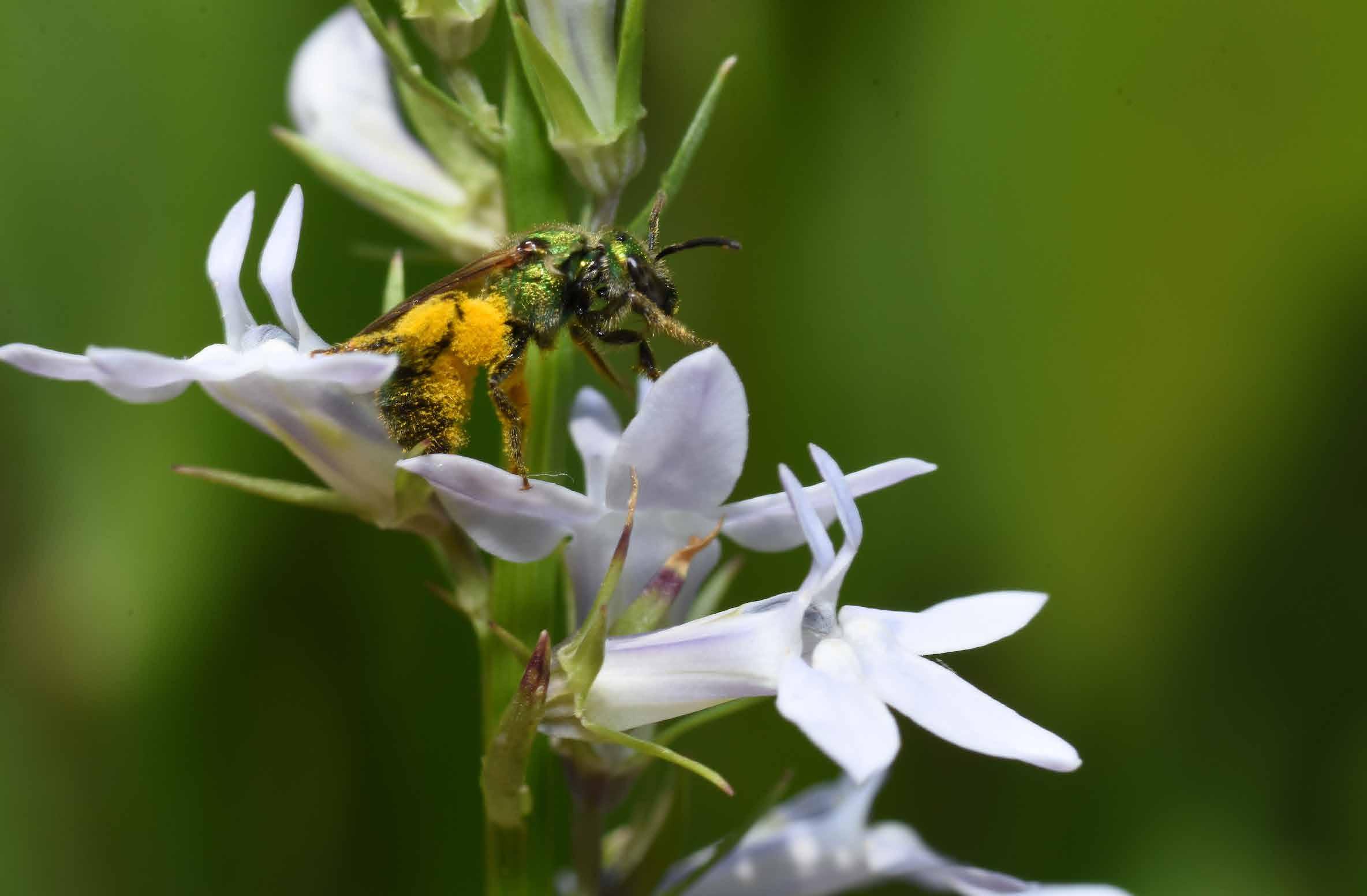
April 2023 – March 2024


April 2023 – March 2024

As I reflect on the past year, I am deeply grateful to everyone who has helped to make our work possible—from staff and volunteers, to members and guests, to partners and donors. Thanks to all of you, we were once again one of the top three most-visited destinations in the state, welcoming more than 300,000 guests to Midcoast Maine. We engaged 100,000 members of the public in our immersive educational offerings, inspiring guests of all ages to feel connected to the natural world We feel fortunate to deliver on our mission at such a scale.
In 2023, we began implementing a three-year Strategic Plan to guide our work. Focused on various strategic imperatives, ranging from cultivating inspiring gardens to deepening community collaboration, our imperatives translate to specific goals, including “protect and advocate for plant biodiversity” and “develop strategies to protect and promote plants in wild and cultivated spaces.” Given these imperatives, and the urgency of climate change, plant conservation has become an increasingly central pillar of our organization.
With input from our staff and board, we have made a mission statement revision to reflect this heightened focus. Small but significant changes were made to emphasize our growing commitment to conservation:
The mission of Coastal Maine Botanical Gardens is to inspire meaningful connections between people and nature and promote plant conservation through horticulture, education, and plant science.
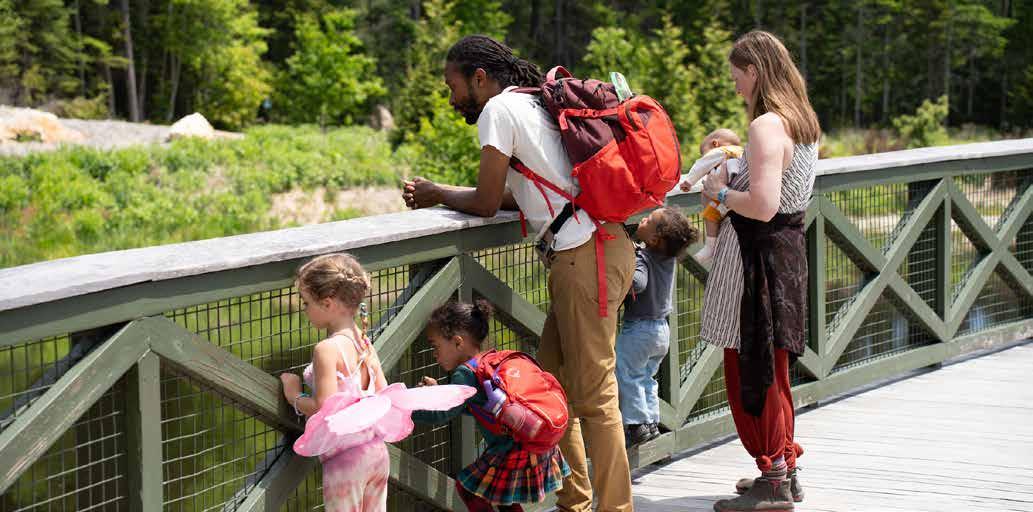
Data collected from our interactive tours show that even the most skeptical members of the public have observed that seasons, rainfall, and natural cycles are no longer following familiar rhythms. Our Plant Science team is hard at work identifying the impacts of climate change on native plants, and working to mitigate these impacts. Through research, seed banking, propagation, and planning for ecological restoration, we are doubling down on our commitment to plant conservation.
Coastal Maine Botanical Gardens is part of a constellation of dedicated organizations around the world focused on preserving biodiversity, educating the public, and protecting the planet. Your participation in our work helps to make this possible, and we are proud to have such an engaged community of supporters and partners by our side. Thank you for joining us on this journey, and for your continued interest in our work.

Gretchen Ostherr President & CEO





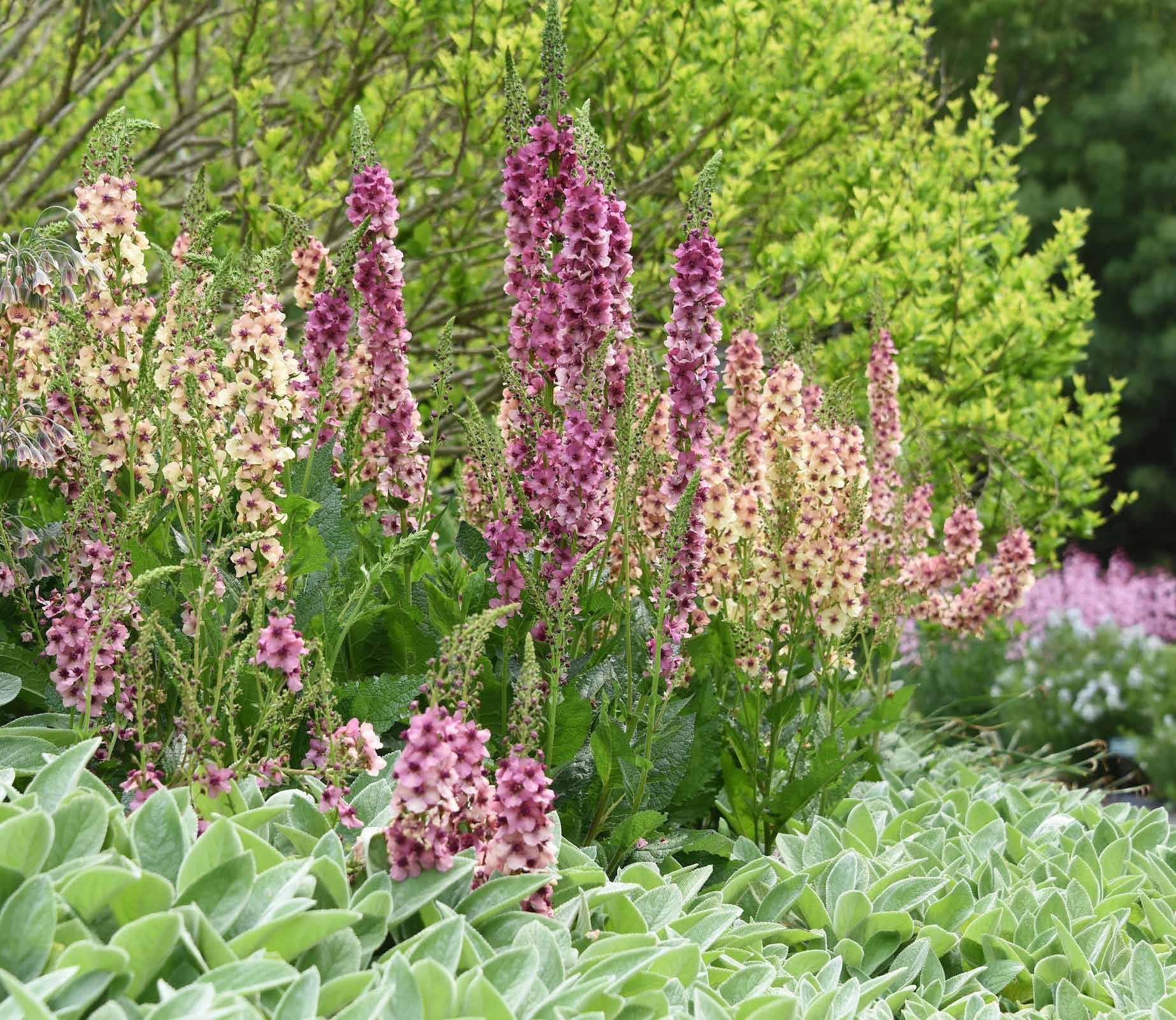
April 1, 2023–March 31, 2024

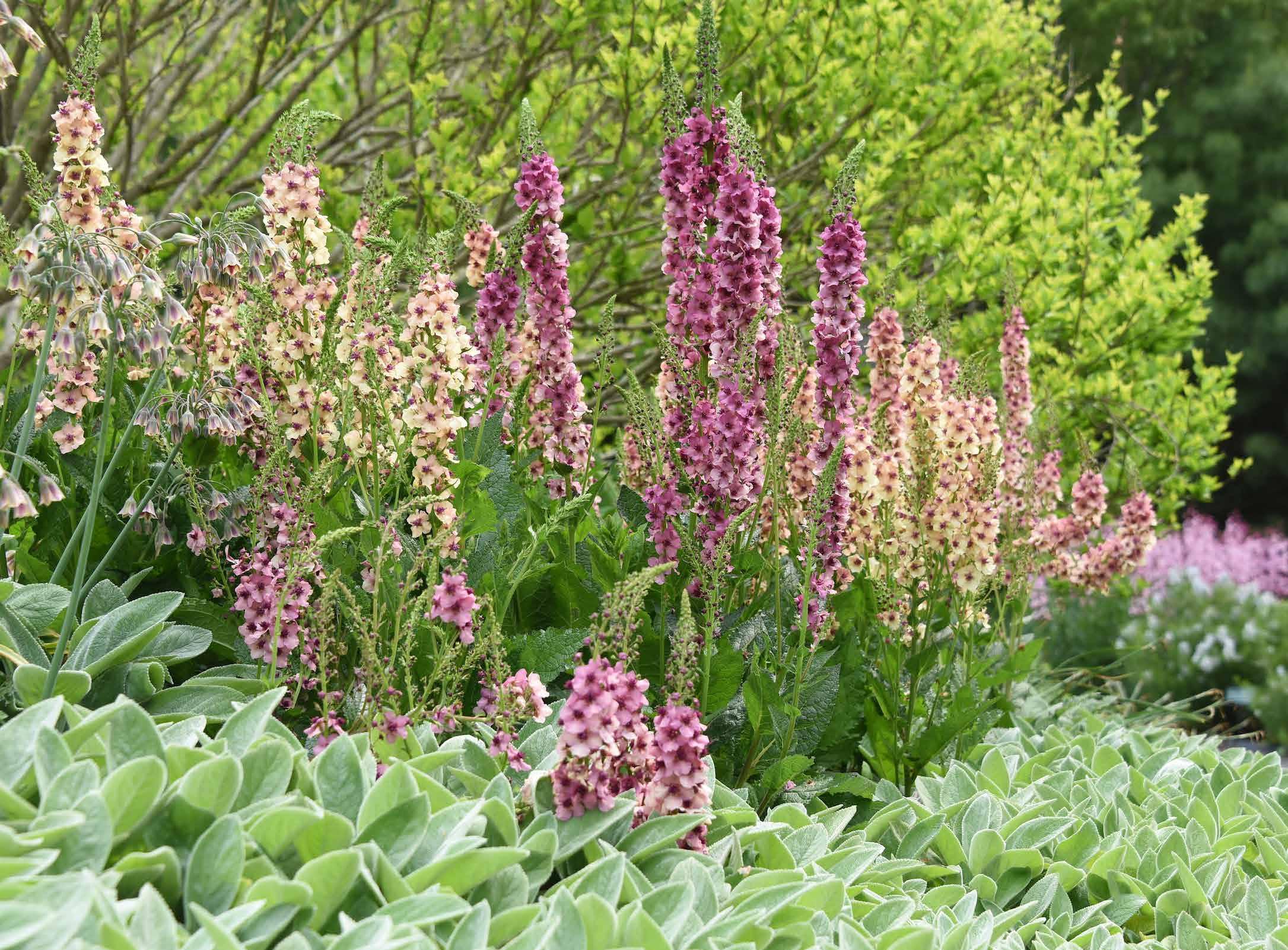
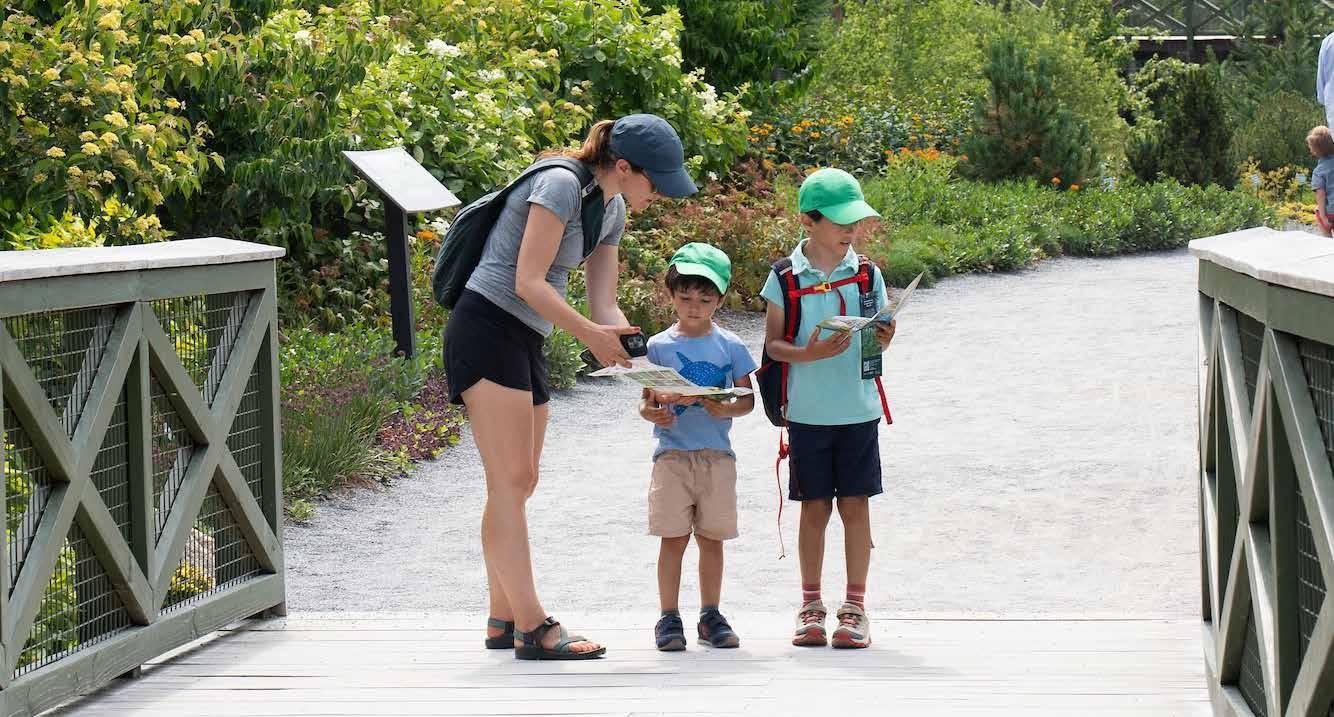
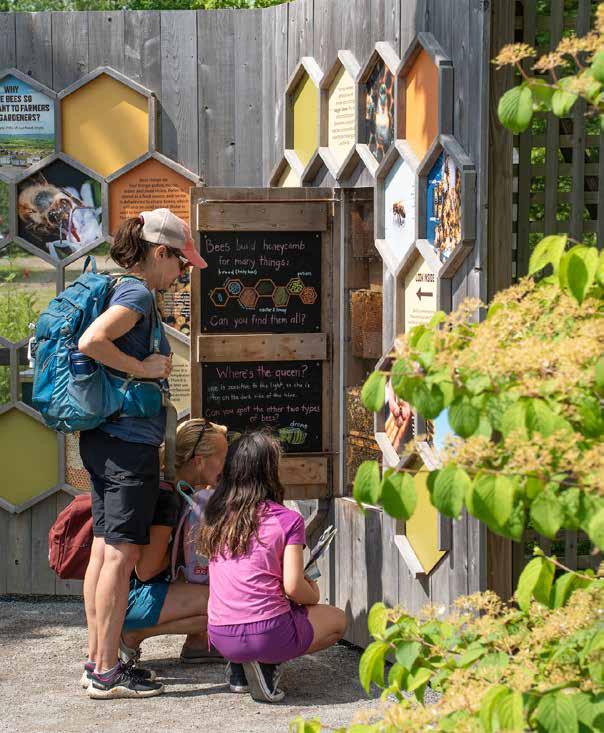
From conversations at our Learning Apiary to sharing the wonder of butterflies and caterpillars in our Native Butterfly House, we interacted with almost 100,000 guests. This year, we introduced the Climate Stories Tour, engaging participants in conversation by exploring how their relationship with the environment is being impacted by the changing climate.
LEARN MORE
Aimed at building climate-resilient communities, we engage participants in stories about the natural world.

Thanks to your support, we subsidized 37 separate field trips for 26 Title I schools. Our subsidy waived the admission fee for each school and provided a transportation stipend.
LEARN MORE

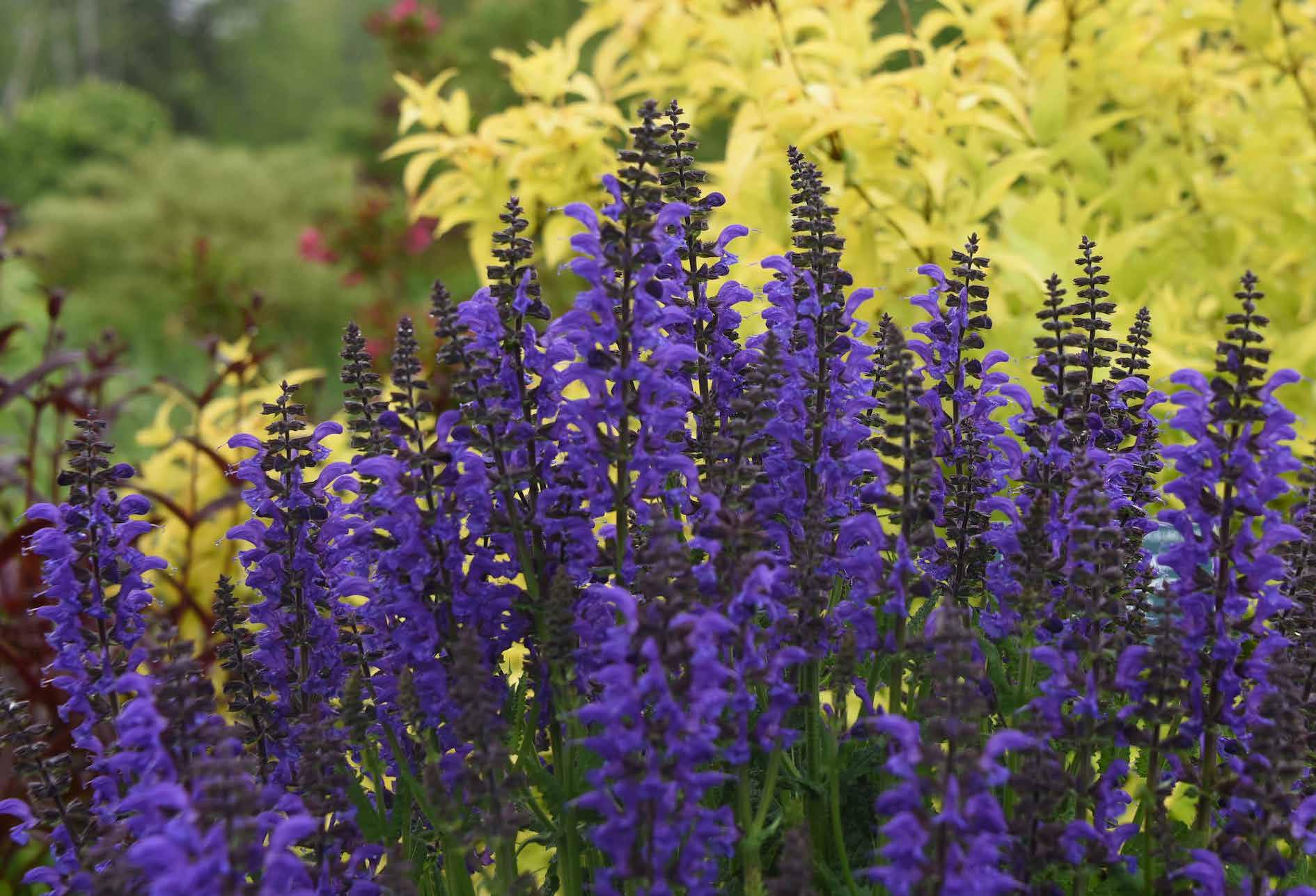

Working with seven community-based organizations, and our own Visually Impaired Persons group, we provided therapeutic horticultural services to 360 participants. Horticultural Therapy embodies many of the Gardens’ values of inclusion, diversity, equity, and accessibility, creating opportunities for empowerment, compassion, pride, and discovery for people with disabilities.
LEARN MORE
310,873 people visited during the year
28,996 of those visited for free (Gardens for All, Library Pass Program, LL Bean Free Kids Wednesdays, Lincoln County/Boothbay Residents)
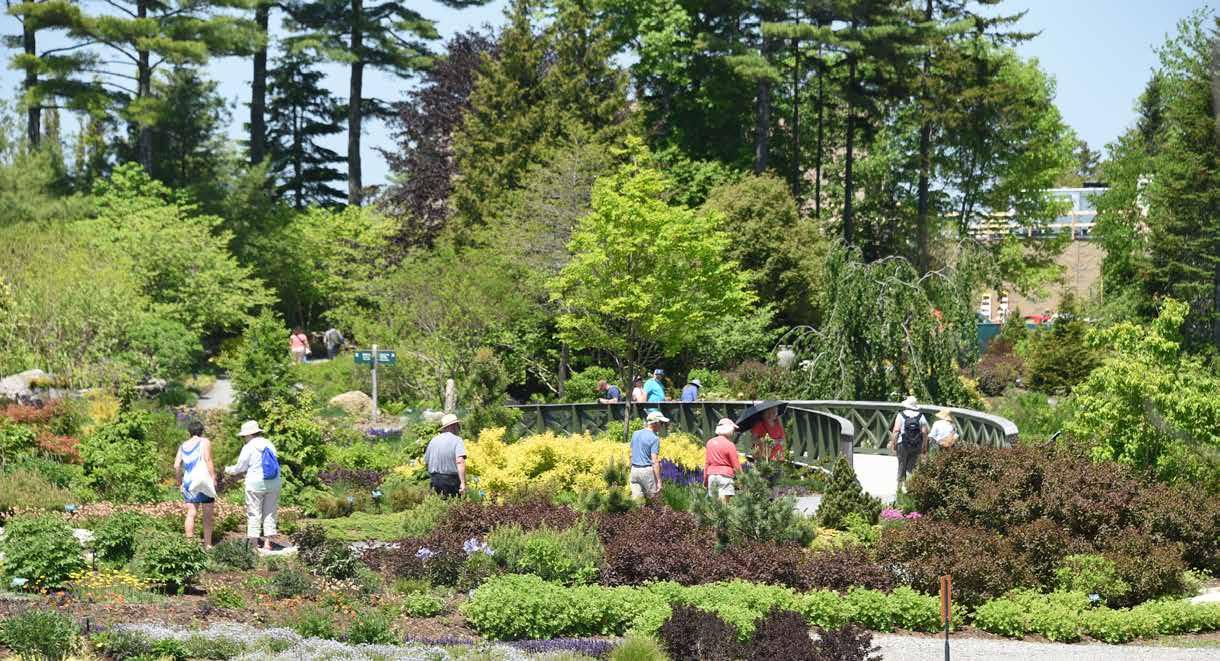
14,000+ members
5,547 students came to the Gardens on field trips
1,479 kids attended Gardens camps
1,929 adults took Gardens classes

We partnered with organizations whose missions align closely with ours.
90,912
Native Butterfly House guests
61 specialty tours
33 Climate Stories tours
800
Chewonki Residency participants
4,700
Caterpillar Lab participants
360
Horticultural Therapy participants

Held in partnership with Bigelow Laboratory for Ocean Sciences and Boothbay Region
Clean Drinking Water Initiative, a panel of experts convened to discuss PFAS research, findings, and policy.

Wabanaki leaders discussed the interconnections of land, culture, and Indigenous sovereignty in bringing the work of healing and repair into the place we now call Maine, emphasizing Indigenous leadership in conservation.

We expanded our network of conservation partners.

In the first symposium of a three-year collaboration with Indigo Arts Alliance, a panel of thought leaders discussed how Black and Brown communities have always held spiritual, traditional, and cultural relationships to the land.

We began seed collection for our new conservation seed banking program and expanded our network of institutional conservation partners at national and regional scales, including memberships in the Center for Plant Conservation, Northeast Seed Network, Restorative Landscape Coalition, and Ash Protection Collaboration Across Wabanakik. With Maine Natural Areas Program, we officially launched our project Preparing for the Future of Plant Conservation in Maine: A Comprehensive Status Assessment of Maine’s Native Plants in which all native plant species of Maine will receive a prioritized conservation rank.
LEARN MORE

Science and Collections developed and refined the Gardens’ new conservation program with the purpose of understanding and mitigating climate change impacts to plants.
Our Plant Science team, with input and collaboration from our Horticulture team, is curating, developing, and managing information for the Gardens’ living collections. Conservation research in horticulture, in partnership with the University of Maine, will test concerns about how native plant cultivars might impact wild native plants.
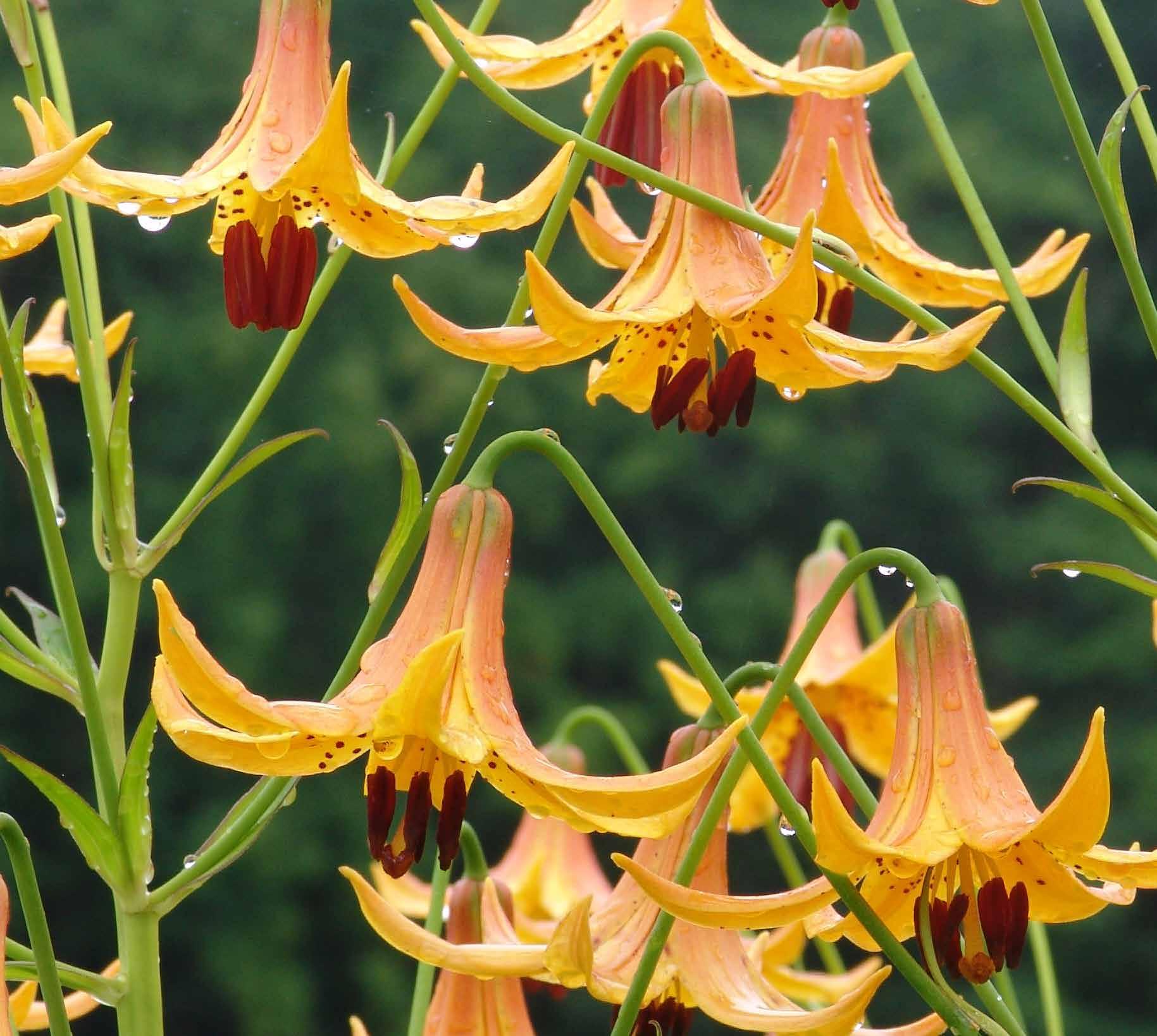
Our goal is to conserve the plant biodiversity of the three Level III ecoregions found in Maine: the Northeastern Highlands, Acadian Plains and Hills, and Northeastern Coastal Zone. Our program places emphasis on plant migration, plants at risk of becoming endangered, and plants specific to habitats most at risk.
LEARN MORE


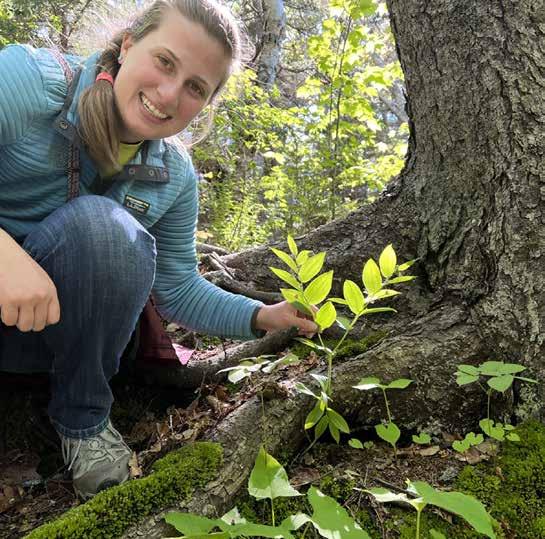
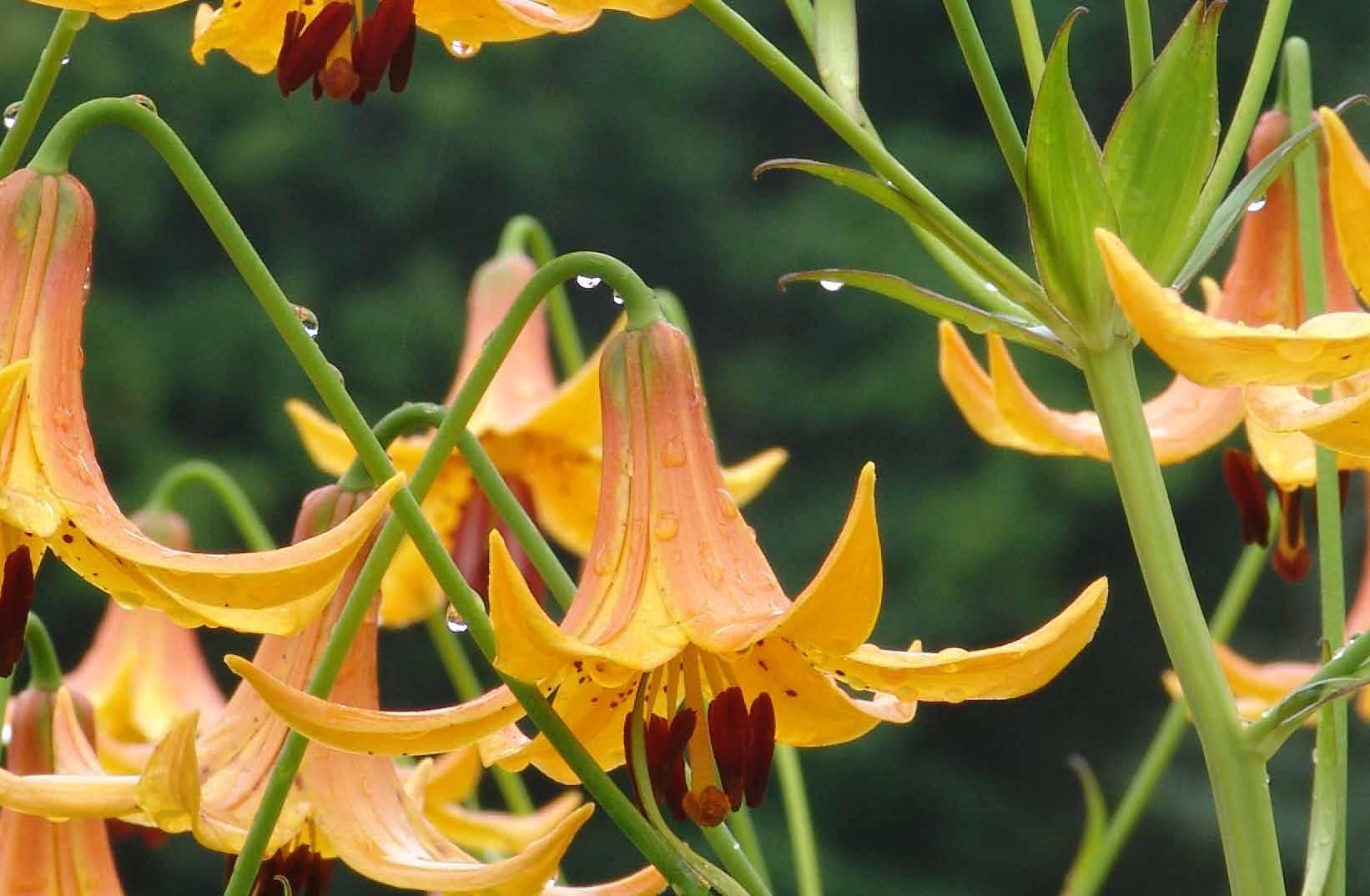
In our herbarium, we made important progress on a comprehensive gap analysis to identify which plant species of Maine are currently missing from our collection, leading to the development of a list of desired species for future inclusion. We also completed our ambitious project to publish the collection’s images and data on a searchable online portal, making it globally accessible to the scientific community. Data and images from certain sensitive plant groups and state or federally listed rare species have been redacted for protection.


The Horticulture team focused on environmental stewardship through garden maintenance, water management, compost production,

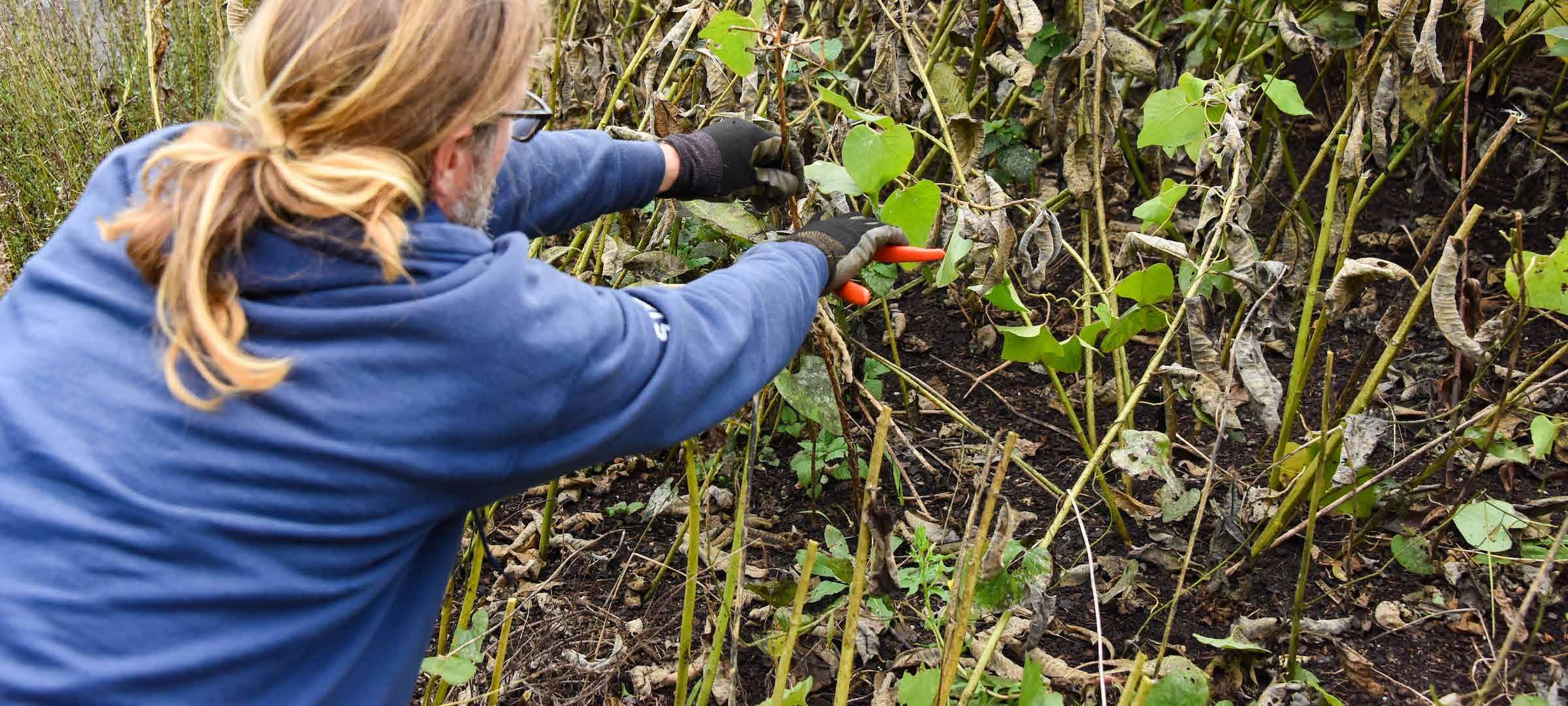
Traditional garden maintenance practices have focused on addressing aesthetic expectations with limited attention given to ecological considerations. Recognizing the impact our gardening practices can have on native insect populations and other wildlife, we are prioritizing wildlife populations first, while still addressing aesthetic expectations. Maintenance decisions are made after considering several factors, including plant composition and a garden’s purpose statement. We’ve added signs in our garden beds to explain our new practices and their impacts.
LEARN MORE

We continue to fine-tune our compost production with the goal of developing a closed-loop system where all materials removed from the Gardens return as a nutrient-rich soil amendment, reducing the need to bring in outside compost material.

As we encounter unpredictable weather conditions, water management remains a critical concern. Having upgraded to a smart irrigation system, we can now adjust watering schedules based on weather conditions, conserving water resources.


With help from the Browntail Moth Mitigation Fund, we removed 1,800+ browntail moth nests from 174 trees and shrubs throughout the property. We also created a sign to educate guests on the risks and safe removal of this non-native insect.



Thank you to our staff, volunteers, Board, supporters, community, and members who make all of this possible.